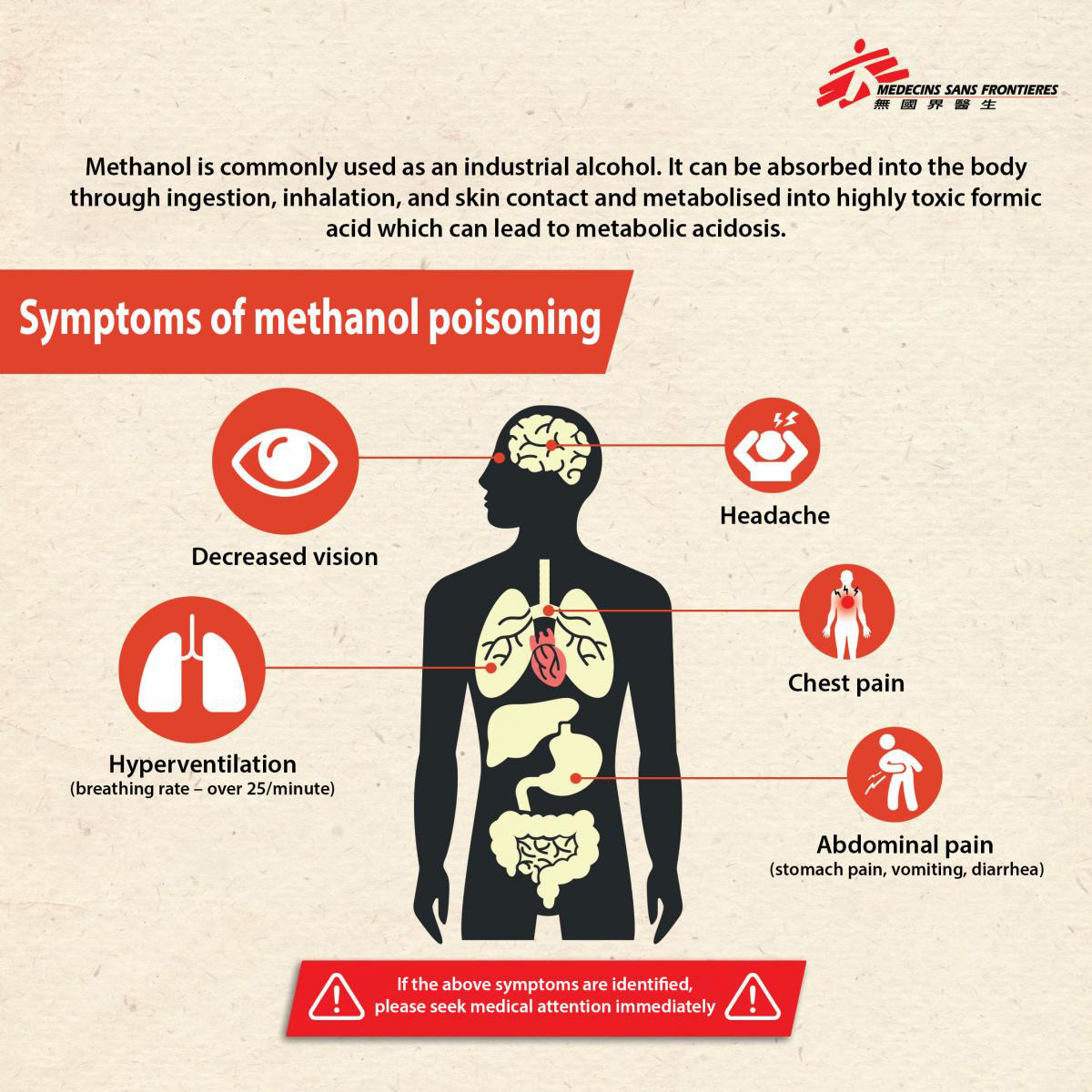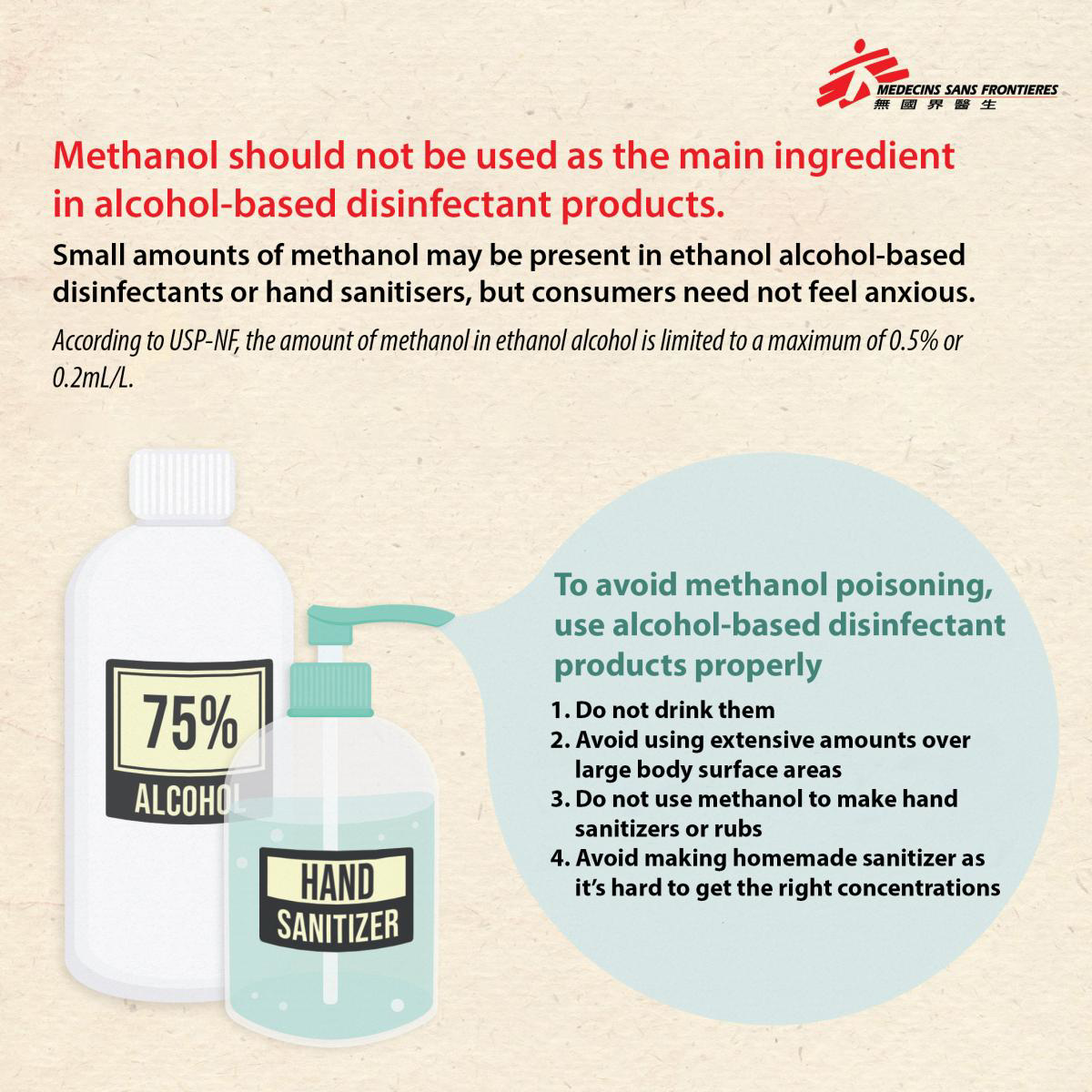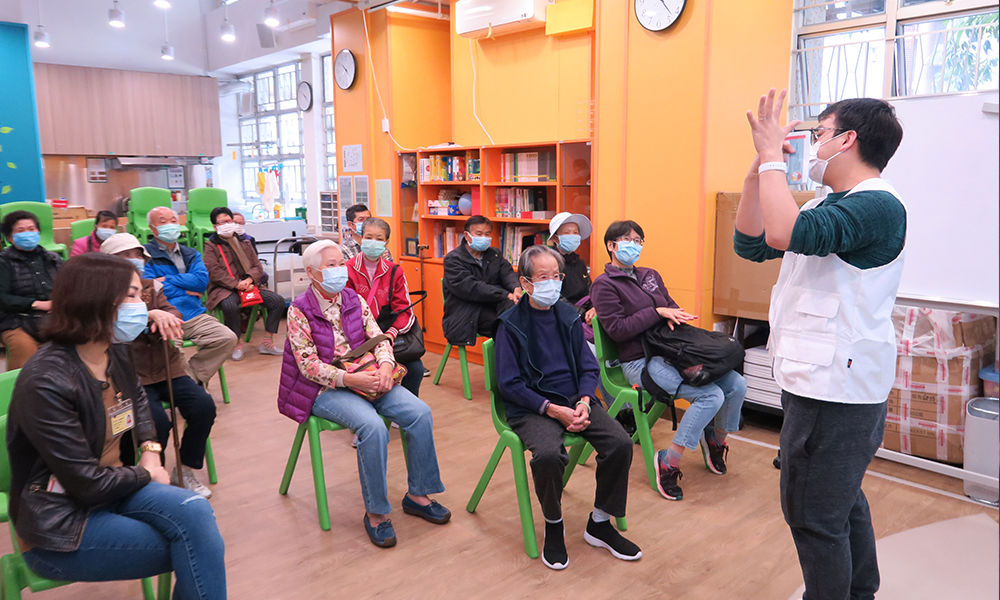Since the outbreak of COVID-19, the quality and safety of personal hygiene products, including alcohol-based disinfectant products, have been brought to public attention. In February 2020, the Customs and Excise Department in Hong Kong seized a number of disinfectant alcohols which consisted of 52% methanol. The Consumer Council in Hong Kong tested 24 disinfection alcohol samples and found that six of them contained small amounts of methanol (0.007% to 0.0336%).
What is Methanol?
Methanol is a widely available chemical used industrially as a solvent, and as an alternative fuel source. It is a colourless liquid with a mild alcoholic odour which makes it difficult for us to distinguish it simply by the appearance and smell. Exposure to methanol can occur through inhalation, dermal absorption, and most commonly through ingestion. When ingested, most of it becomes formaldehyde in the body which then rapidly metabolises to become highly toxic formic acid and its anion formate. High exposures may result in a severe acidosis and multiple organ failure, blindness, brain damage and even death.

Small amounts of methanol can also be found in some of the consumer products in our daily lives, such as inks and dyes, paint thinner, and cleaning products. It is also found naturally in some fruits, vegetables, alcoholic and non-alcoholic fermented beverages. With the presence of methanol in our diet, methanol may also be present in our human body in trace amounts.
The risk of using alcohol-based disinfectant products
Methanol should not be used as a disinfectant nor hand sanitizer as it can cause health risks to the human body and it is indeed ineffective in killing virus. The use of methanol as a major ingredient in hand sanitizer has not been approved nor recommended by any governmental authority. Ethanol and isopropanol are the common types of alcohol being used in disinfectant alcohol and alcohol-based hand rub formulations.
Methanol is an impurity sometimes found in ethanol alcohol. Therefore, if small amounts of methanol are present in ethanol alcohol-based hand sanitizers or rubs, consumers need not feel anxious, but it should never be ingested. Because methanol is an impurity in ethanol alcohol, it is not listed as an active ingredient on the label. According to USP-NF, the amount of methanol in ethanol alcohol is limited to a maximum of 0.5% or 0.2mL/L.
Prevention: proper use of alcohol-based disinfectant products
Methanol poisoning cases are quite rare in Hong Kong. Consumers need not worry too much about the risk of methanol poisoning, as long as they are aware of the safety precautions of using disinfectant products. For example, consumers should read the product labels carefully when buying disinfectants or hand sanitizers; choose products with labels that clearly specify the ingredients; avoid making homemade sanitizers as it is difficult to control the correct proportion of each ingredient. Aside from this, proper use of disinfectant products is one of the most effective ways to avoid methanol poisoning:
1. Do not drink them
2. Avoid using extensive amounts over large body surface areas
3. Do not use methanol to make hand sanitizers or rubs
Hand hygiene is paramount in infection prevention and control, so wash your hands often with enough soap and water. Spend at least 20 seconds washing your hands and make sure all parts are washed. If there is no visible dirt on your hands, an alcohol-based gel is also a good option.

MSF Methanol Poisoning initiative
Large scale methanol poisoning outbreaks occur from time to time all over the world, mainly due to the consumption of adulterated or illicitly produced alcoholic beverages. In 2012, the Methanol Poisoning initiative (MPi) was established as a joint venture between Oslo University Hospital (OUH) and MSF with the aim to reduce the harmful effects of methanol poisoning globally by strengthening medical emergency knowledge and response capacity in high burden areas where MSF is present. So far, the team has supported three outbreak interventions in Libya and Kenya; facilitated trainings in Kenya, Russia and Indonesia; and supported the development of local treatment protocols in countries like Cambodia.


